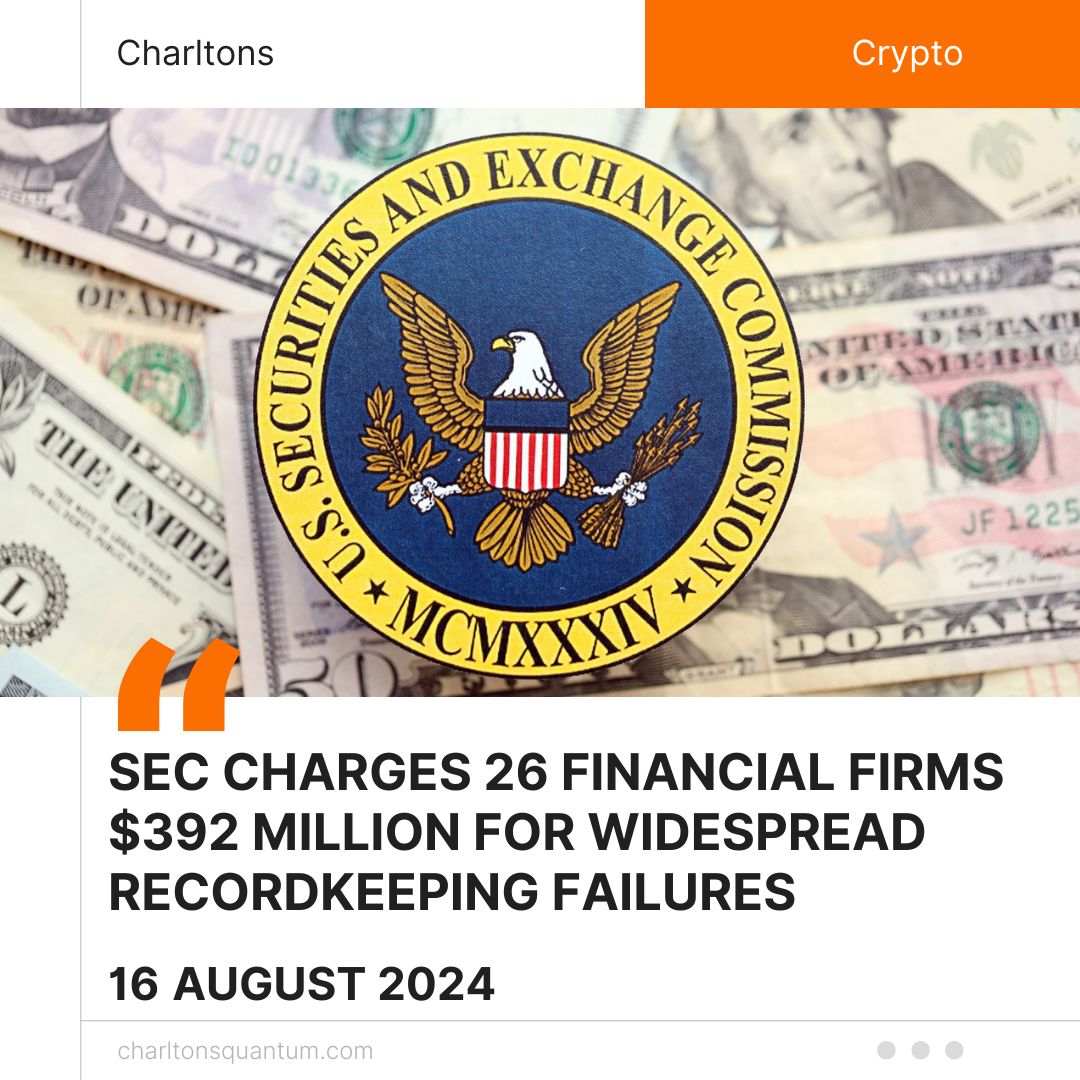
On 14 August, 2024, the Securities and Exchange Commission (SEC) announced a landmark enforcement action against 26 broker-dealers, investment advisers, and dually-registered entities for widespread and systemic failures in maintaining and preserving electronic communications, resulting in combined civil penalties of $392.75 million. This sweeping action, which includes major financial firms such as Ameriprise Financial Services, Edward D. Jones & Co., and RBC Capital Markets, shows the SEC’s unwavering commitment to upholding the integrity of the financial markets by ensuring strict compliance with federal recordkeeping requirements.
They acknowledged that their conduct violated key recordkeeping provisions under federal securities laws. This settlement marks one of the most significant enforcement actions in recent years, reflecting the SEC’s commitment to enforcing compliance with books and records requirements, which are foundational to the integrity of financial markets.
The SEC’s investigation revealed that the firms and their personnel had engaged in the pervasive use of unapproved communication methods, often referred to as “off-channel communications.” These methods, which include the use of personal devices and encrypted messaging apps, were not captured by the firms’ official recordkeeping systems. As a result, critical communications that should have been maintained under securities laws were lost, depriving the SEC of crucial evidence during investigations.
The recordkeeping failures were not isolated incidents but were found to be systemic, involving personnel at multiple levels of authority, including senior management and supervisors. The firms were charged with violating specific recordkeeping provisions of the Securities Exchange Act and the Investment Advisers Act. Additionally, the SEC found that the firms had failed to reasonably supervise their personnel, thus failing to prevent and detect these violations.
In response to these findings, the SEC has imposed significant financial penalties on the firms, ranging from $50 million for major entities like Ameriprise and Edward Jones to $400,000 for smaller firms like Haitong International Securities (USA) Inc. Notably, three firms that self-reported their violations—Truist Securities, Cetera Advisor Networks, and Hilltop Securities—received reduced penalties, demonstrating the benefits of proactive cooperation with regulatory authorities.
Beyond the financial penalties, each firm has been ordered to cease and desist from future violations of the relevant recordkeeping provisions and has been censured. The firms have also begun implementing improvements to their compliance policies and procedures to prevent such failures from occurring in the future.
This sweeping enforcement action sets a significant precedent not only for traditional financial institutions but also for the rapidly evolving cryptocurrency industry. As crypto firms increasingly intersect with traditional financial markets, the SEC’s actions serve as a stark reminder that regulatory compliance is paramount, regardless of the technology or asset class involved.
The precedent set by this case could lead to heightened scrutiny of recordkeeping practices within the crypto industry, particularly as more crypto firms seek to expand their offerings to include regulated financial products and services. The use of blockchain technology, while inherently transparent, does not absolve firms from maintaining proper records of communications and transactions, especially those conducted through off-chain methods.
The SEC’s enforcement action against these 26 firms sets a precedent for the financial industry, including the emerging crypto sector, the necessity of strict adherence to regulatory standards to ensure transparency, investor protection, and the smooth functioning of markets.
(Source: https://www.sec.gov/newsroom/press-releases/2024-98)





